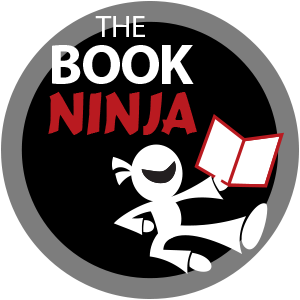One of the more challenging aspects of being an author is marketing. Not because it’s difficult, but because many authors feel uncomfortable with self-promotion. Sometimes indie (or self-published) authors have unrealistic expectations, believing the myth that “if they build it, people will come.” The marketplace is flooded with books; just take a look on Amazon. According to Bowker, the total number of self-published titles surpassed the one million mark for the year for the first time in 2017. This isn’t a reason to get discouraged… it’s a reason to be smart about marketing. But you don’t have to do it alone—you can get others to shout out your book!
The most important thing—in fact the foundation of successful book marketing—is building relationships. And they aren’t limited to family and friends. The relationship you’ll really want to cultivate as an author is the one you have with your tribe, so one of the first thing you’ll need to do is build a fanbase. Having a loyal following is the best vehicle for promoting your books. Readers who follow you and tell their friends about your book do so because 1) they like you, and 2) they trust you. Likeability and trust are important in any relationship, and are essential to successful marketing.
Likeability
They have to know you to like you. Don’t downplay the importance of having an author website and social media pages, and be sure to post on them regularly. Your website and social media posts shouldn’t be one sales pitch after another. They should be avenues for potential readers and your fans to get a peek inside your life. They want to be able to relate to you. Don’t be afraid to be vulnerable, to share your dreams and challenges, and what you did to achieve or overcome them. Be honest and you’ll gain the trust of your audience.
Trust
Building trust as an author is crucial for success. Readers need to trust that you’ll:
- Provide great content
- Know your subject well
- Be reliable with accurate and timely resources
Providing great content is more than just giving readers information or a fun experience. It’s knowing your target audience, what their challenges are, and how to help them address their needs. Remember, it’s about them, not about you. Your writing–even if it includes your life story or personal situation—needs to fill a need in their lives or answer questions they have. In other words, what’s in it for them? How will reading your book improve their lives in some way?
Knowing your subject well means just that: really know what you’re writing about. Avid readers have built-in BS antennae (and that doesn’t stand for Boy Scouts). They can sense when you’re not being “trustworthy, loyal, helpful, friendly, courteous, kind…” To gain credibility as an author you can’t afford to fake it till you make it.
And that leads into accuracy. Give credit where it’s due. Cite your sources. Check links in your Kindle book to ensure they aren’t broken. As much as possible, unless it’s a historical book or relevant to your topic, use up-to-date information. In other words, don’t refer to an article that’s 10 years old if there is a more recent one that supports your point.
People can like you, but if they don’t trust you they won’t find value in buying your book.
Make it Easy to Shout Out Your Book
Take advantage of several social media networks. Facebook is popular, but it shouldn’t be the only tool in your marketing tool kit. Twitter, Pinterest, Instagram, and LinkedIn are all good ways to reach your readers and make it easier for them to shout out your book. It’s a simple click of the mouse to retweet a link to your blogpost, book, or author page. Social media is great for announcing giveaways, book signings, speaking engagements, and engaging your fans through asking questions or inviting discussion.
Your fanbase will be motivated to promote you and your books when you engage them with valuable, useful, and fun promotions. Offer exclusive or free content on occasion, run contests, hold local and online events. Give people reasons to want to engage with you.
Last but not least is making yourself accessible. Your contact information should be easy to find. Put buttons to social media in prominent places on your website and Amazon author page. Do you have an email address or business phone where you can be reached? If it isn’t included at the end of your book, be sure to have it posted on your various social media profiles.
With all these things in place—Likeability, Trust, and Accessibility— you’ll have fans (besides mom, aunt, and grandma) shouting out your book loud and clear!
Want more in-depth training on how to get others to shout out your book? CLICK HERE to join The Book Ninja Academy and get access to dozens of trainings specific to book marketing!

